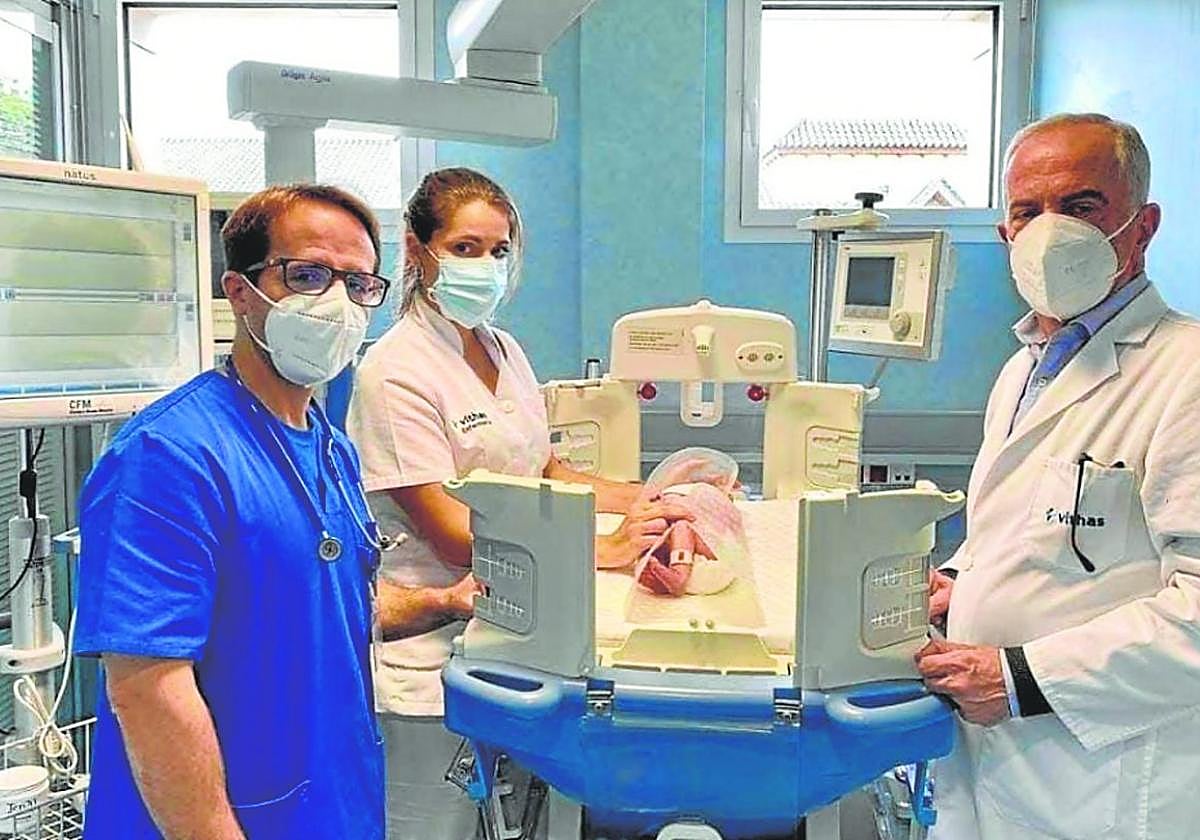Gibraltar baby is first to undergo new procedure in Andalucía
A medical team from Hospital Vithas Málaga carried out the transfer from the Rock back to the city in a mobile ICU
Iván Gelibter
Gibraltar
Viernes, 31 de marzo 2023
Good news for medical innovation in Malaga, even better news for Scott and his family in Gibraltar. A neonatal team successfully carried out the transfer of this critically ill newborn with the help of hypothermia. Thanks to an existing agreement between the GHA hospital in Gibraltar and the Vithas Málaga Hospital, the need for a successful transfer - the first of its kind in Andalucía - triggered a rapid response for this complex case.
Scott, star of this tale with a happy ending, was born prematurely a few weeks ago with the additional complication of perinatal asphyxia (also known as cerebral hypoxia). This lack of oxygen during the perinatal period can lead to the development of cerebral palsy.
"Perinatal asphyxia continues to be a major cause of neurological disorders and even death," stated the Vithas team. It affects 2 out of every 1,000 newborns (moderate to severe levels) and carries a high risk of permanent neurological damage. "Current therapy uses hypothermia whose efficacy, although proven, does not always achieve full recovery of all function," they added in a press release.
For Scott's case, it was a team from Hospital Vithas Málaga led by Dr Enrique Sánchez (Head of Neonatology at the Malaga hospital and paediatrician at Vithas Xanit Gibraltar) with nurse Elena Cid, who travelled in a fully equipped ambulance from Malaga to Gibraltar. Awaiting their arrival were more paediatric doctors - Lorena Soler, Mont Doukrou and Maryam Tasbihi - charged with having the specialist equipment ready, as well as aiding the transfer. Overseeing the whole process was Dr Juan Pérez, Head of Paediatrics and Paediatric Surgery at Hospital Vithas Málaga.
"The complexity of the transfer lies in the fact that the baby is kept at a temperature of 33.5 degrees, mechanically ventilated and medicated thanks to the hypothermia machine," explained Dr Sánchez. It is a treatment that "must be started before the patient is six hours old."
The medics explained that Scott was born prematurely via urgent caesarean section, in cardiorespiratory arrest and with clear signs of cerebral hypoxia. It was 'a pioneering decision' to move the active hypothermia machine itself to Gibraltar so that it reached Scott much sooner, starting his treatment during the return journey to Malaga. "This decision led to a significant shortening of the period to start treatment and, therefore, a reduction in the possibilities for complications. All these components make it the first active hypothermia treatment of its kind to be carried out in either public or private healthcare in Andalucía", said Dr. Sánchez.
The Vithas medics said, "We know for sure that cooling babies for 72 hours improves their neurological prognosis..... so transferring with the machine already working is vital."
Once in Malaga, Scott continued to receive active hypothermia treatment for 72 hours, remaining hospitalised for two weeks for observation and tests for possible neurological consequences. Scott is now over one month old and discharged from hospital with no lingering symptoms and no need for any support. Nevertheless, as with all patients affected by cerebral hypoxia, he will require follow-ups by the neurology team.
